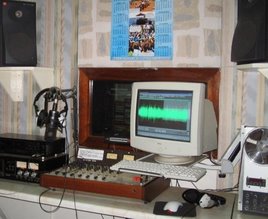According to the Malawi
Communications Regulatory Authority (MACRA), there were more than 70 licensed
broadcasters in Malawi by end of 2014. Yes a good number are yet to be on air! Some
people have argued if Malawi really needs more radio and television stations.
While
see radio as a lucrative business, some see it as opportunity to reach Malawi
with their agenda. Regardless of the categorization of the radio station
(public, commercial, religious, community, etc.) each needs capital and
operational investment in terms of studio, office space, transmitting equipment,
production, delivery, human resource, audience management, marketing, etc.
These areas call for business approaches.
Revenue
Most stations earn their revenue
through advertising, sale of airtime, donations and fundraising initiatives.
Advertising brings direct cash to radio stations and depending on the nature of
the radio station, it may be the single most important source of revenue.
The corporate world and government,
small and big institutions are among the usual clients for many radio stations
in advertising. However not all radio stations get advertising from government
because most of such goes to the public broadcaster MBC, a development that is
often contested by private broadcasters. In many developed countries, public
broadcasters do not take adverts because they are expected to run fully on
tax-payers money.
Radio stations also run programmes
fully paid for by an interested client. This allows the client to generate own
content and promote for instance behavioral change. Radio advocacy and
religious programmes often take this approach. As they run for a certain period
of the year, such programmes allow the station earn a regular income. And the
more of such programmes, the better for the station.
Sometimes radio stations receive donations
from its well-wishers and friends.
Listener donations often demonstrate the
impact of the radio has on the individual. Some listeners give to thank the
stations for the change brought in their lives through programmes.
Testimonies
of changed lives through religious programmes are received by many radio
stations. Donations also come from institutions of good will and in partnership
with the station. While playing a significant role, Management cannot bank on
this source of income as it is not certain and regular.
A number of stations often start
with donated equipment, services and space.
Radio stations also raise some
income through fundraising initiatives of various natures. This may be through
sale of the sale of the station’s merchandise, services and property.
Expenditure
Its work force which deserves a
wage just like some of its content contributors. The wage bill may be the
biggest expense area. These employees also pay taxes.
Production of news and programmes
is very costly.
MACRA expects the broadcaster not
only to pay for the license and the frequencies annually but also to renew its
broadcast license every 5 or 7 years. These monies are expected from the
broadcaster regardless of the moneys they make.
Most stations rent space from MTL on
transmitting sites. For stations with more than 5 transmitters, such monthly
bills are no less than half a million Kwacha these days. Unfortunately it is
only MTL that has telecom infrastructure to support most broadcasting therefore
broadcasters do not have much choice but pay pay exorbitant rates.
To be on air every second of the day,
it also calls for vigilance and proper preventive transmitter maintenance. Administrative
support and audience management have own costs.
No radio operates alone hence it
subscribes to professional organizations and umbrella institutions at a fee.
They also pay royalties to artists through the Copyright Society of Malawi
(COSOMA).
Marketing
Every station strives to be popular.
In an ever changing media environment, no station can boast of monopoly in the
business. Listeners now can tune off any station that does not meet their
needs. The station has to constantly ensure that it is popular, visible and
present with the people. Investment into radio marketing is also costly
demanding a well-resourced strategy and team.
Most broadcasters in Malawi are
not-for-profit but nevertheless have to find resources to sustain their work. For
instance it costs TWR a minimum of 10,000 Malawi Kwacha an hour to operate. For
it to remain in the business of reaching people with the Word of God it has to
find the money despite the fact that the gospel is free. This explains why
radio is a costly business.



